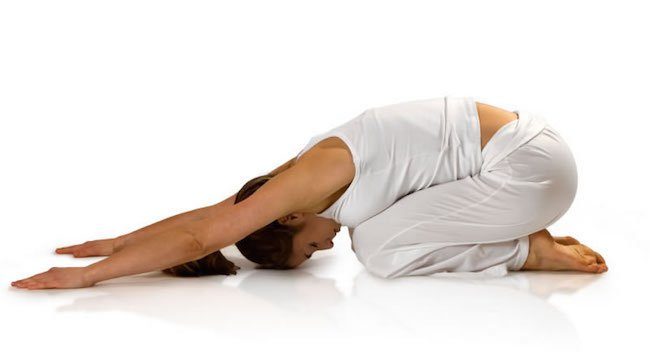
Working out is a great way to stay healthy, keep fit and maintain a healthy body weight. It can help you to feel great, beat stress and increase your strength. However, when taken to extremes, working out can have negative effects on the body and health.
Over training can be a result of working out for too long or at a very high intensity too often, causing the body excessive stress and leaving its mark on your health and performance.
Recovery is an essential part of fitness and you need to allow yourself time to recover between workouts, or you will no longer reap the rewards of exercising. When we exercise, particularly doing strength training or very high intensity training, we are damaging the muscle a little and it takes at least 48 hours for muscle fibres to mend and recover completely. (See also: Best foods and drinks for muscle recovery)
This is how new muscle is built, but only if you allow this recovery time, otherwise you risk doing excessive damage to your muscles.
1. You feel exhausted
Not surprisingly, if you are exercising too much without giving your body time to recover from the workout, you are likely to constantly feel exhausted. Many people get ‘heavy’ legs and find it difficult to find the energy to do everyday tasks.
To avoid this give your body time to recover between work outs and limit very high intensity work outs to a maximum of three times a week with at least a day of recovery in between.
2. You are constantly aching
When your bones, joints and muscles ache after a workout and you have difficulty walking, you have probably worked out for too long or at too high intensity. This is particularly common in endurance athletes. It should be noted that this type of pain can also be caused by poor technique, so this should be evaluated too.
3. You have an elevated heart rate
When you work out, you are increasing your heart rate and putting more strain on the heart muscle. An elevated heart rate, (higher than what is normal for you), at rest or during exercise may be a sign of overtraining.
A longer time for your heart rate to return to normal after working out may also be a sign you are doing too much.
4. Your immune system is low
When your body is under stress due to excessive physical activity it can take its toll on other responses in your body, such as your immune system. People who are overtraining are often very susceptible to illnesses and can take a long time to get over less serious conditions such as a cold or the flu.
5. You are grumpy or irritable
Too much exercise and not enough rest time can lead to huge fluctuations in hormone levels, leaving you irritable, moody and even unable to concentrate.
6. You can’t sleep or seem to need more sleep that usual
Although a moderate amount of exercise can be good for sleep, if you are overtraining it can have the opposite effect. If you work out a lot you may find that your body cannot relax and is in a constantly stressed and hyperactive state, meaning you cannot sleep.
This is especially common in sprinters and athletes who do power work and means that the body does not get enough opportunity to recover as it is missing the prime opportunity to do this.
Some over-trainers however, may get the opposite effect, where the body craves sleep in order to give itself the opportunity to recover and hence you may sleep for a lot longer than normal and get a ‘I could sleep all day’ type feeling.
7. You cannot complete a normal workout or experience decreased performance.
Increased stress due to over training can lead to work outs that were once easy becoming much more difficult to complete or do at the level you could do them at previously.
Many people who are overtraining also see a reduction in performance that is visible in ways such as increased times for races and lack of progression even though they are putting in more time and effort.
8. You are gaining fat despite working out more
Over training can sometimes have the opposite effects to those you want to achieve. Although you may be burning more calories than ever, you may still gain or fail to lose fat due to the hormonal responses induced by too much exercise.
Increased cortisol production due to over training can lead to a tendency to store fat around the midriff and reduced insulin sensitivity. It can also lead you to burn muscle as a source of energy rather than fat. (See also: Working out but gaining weight)
9. Loss of appetite
Working out, as well as physical exhaustion and stress that can result from over training all cause the release of the hormones epinephrine and norepinephrine, both of which decrease the appetite.
Whilst this may be desirable for weight loss, if you are working out a lot you need to feed your body in order to promote proper recovery and avoid injury.
10. Disruption of menstruation in women
Similarly to consuming too few calories, excessive exercise can cause disruptions in the menstruation cycle for women. This may cause irregular periods or complete lack of menstruation.










